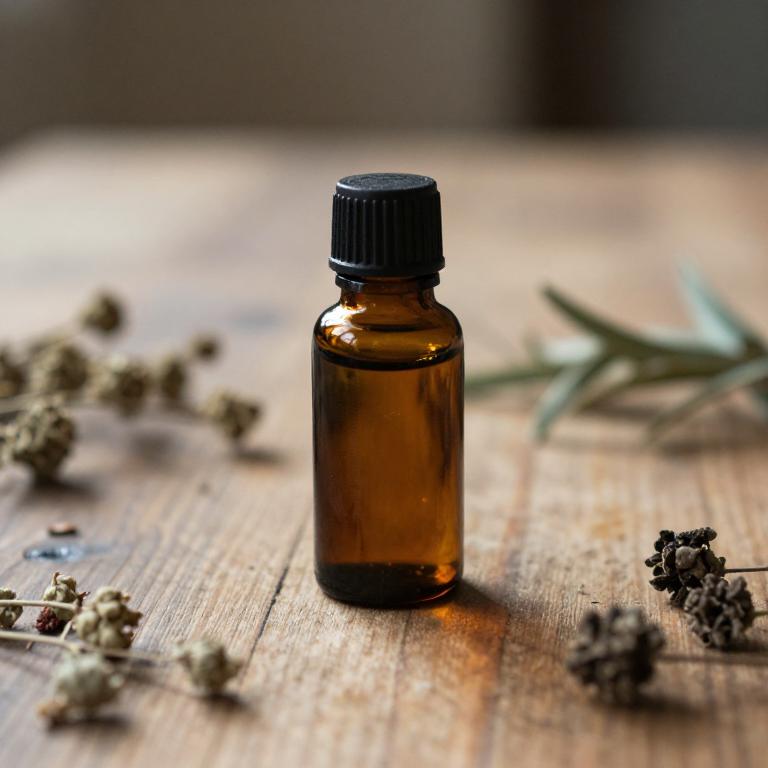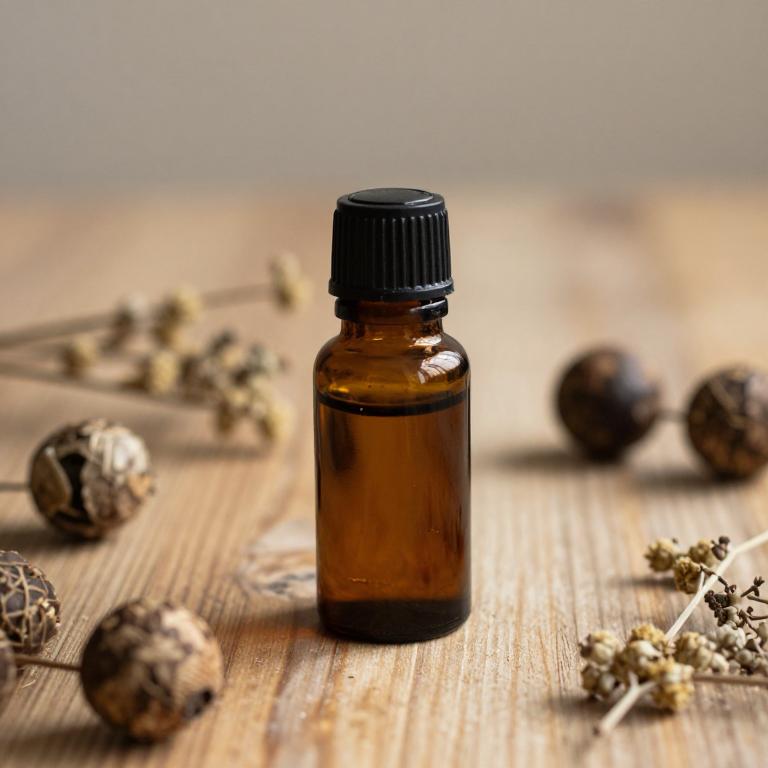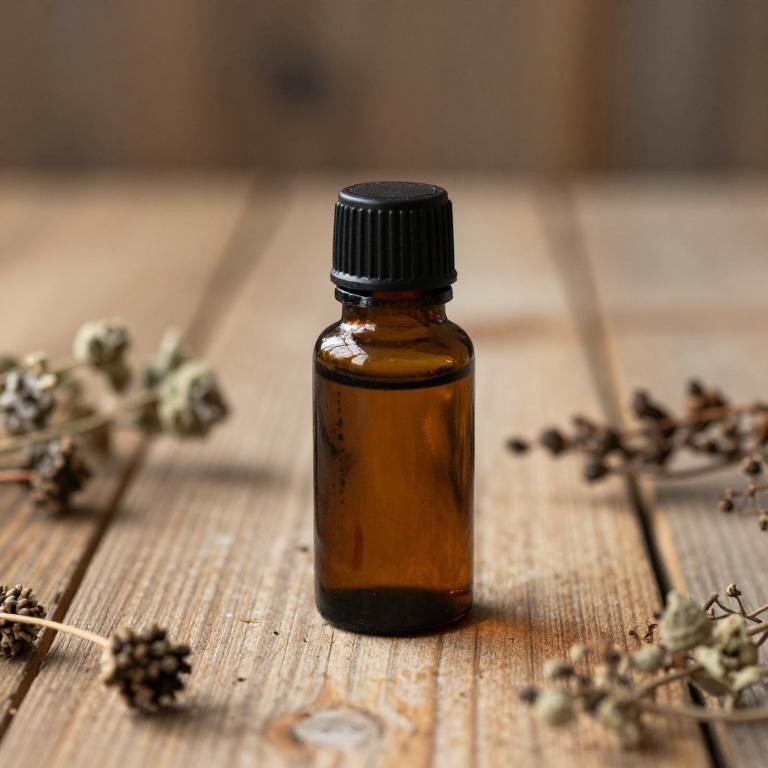10 Best Herbal Essential Oils For Oily Hair

Herbal essential oils are natural extracts derived from plants and are often used in hair care for their therapeutic properties.
For oily hair, essential oils like tea tree, peppermint, and lavender are particularly beneficial due to their ability to regulate sebum production and soothe the scalp. These oils can help reduce excess oil without stripping the hair of its natural moisture, making them ideal for maintaining a balanced scalp environment. When properly diluted with a carrier oil, they can be safely applied to the scalp and hair to promote healthier growth and reduce dandruff.
Incorporating herbal essential oils into a regular hair care routine can offer a natural and effective solution for managing oily hair concerns.
Table of Contents
- 1. Melaleuca (Melaleuca alternifolia)
- 2. Rosemary (Rosmarinus officinalis)
- 3. Lemon grass (Cymbopogon citratus)
- 4. English lavender (Lavandula angustifolia)
- 5. Eucalyptus (Eucalyptus globulus)
- 6. Ceylon cinnamon (Cinnamomum zeylanicum)
- 7. Sandalwood (Santalum album)
- 8. Pogostemon (Pogostemon cablin)
- 9. Thyme (Thymus vulgaris)
- 10. Bacopa (Bacopa monnieri)
1. Melaleuca (Melaleuca alternifolia)

Melaleuca alternifolia, commonly known as tea tree oil, is a popular essential oil derived from the leaves of the Melaleuca alternifolia plant, native to Australia.
It is well-known for its antimicrobial and anti-inflammatory properties, making it beneficial for various skin and hair concerns. For individuals with oily hair, tea tree oil can help regulate sebum production and reduce scalp inflammation, which often contributes to excess oiliness. When diluted properly, it can be applied to the scalp to prevent dandruff and promote a balanced, healthy scalp environment.
However, it is important to use it in moderation and ensure it is properly diluted to avoid skin irritation.
2. Rosemary (Rosmarinus officinalis)

Rosmarinus officinalis, commonly known as rosemary, is a popular herb used in the production of essential oils that are particularly beneficial for oily hair.
The essential oil derived from rosemary leaves is known for its ability to regulate sebum production, helping to reduce excess oiliness without stripping the scalp of its natural moisture. Its antimicrobial properties can also help prevent dandruff and scalp infections, promoting a healthier environment for hair growth. When used in hair treatments or scalp massages, rosemary essential oil can enhance circulation, which may lead to stronger and healthier hair.
However, it is important to dilute the oil properly before applying it to the scalp to avoid irritation, especially for those with sensitive skin or oily hair types.
3. Lemon grass (Cymbopogon citratus)

Cymbopogon citratus, commonly known as lemon grass, is a popular herbal plant used to produce essential oils that are beneficial for oily hair.
The essential oil derived from this plant contains compounds like citral and myrcene, which have natural antimicrobial and anti-inflammatory properties. These properties make it effective in regulating sebum production, helping to reduce excess oiliness in the scalp. When used in hair care routines, lemon grass essential oil can promote a balanced scalp environment and enhance hair health.
It is often diluted with a carrier oil and applied topically to achieve its therapeutic benefits without causing irritation.
4. English lavender (Lavandula angustifolia)

Lavandula angustifolia, commonly known as English lavender, is a popular herb used in the production of essential oils that are beneficial for oily hair.
The essential oil derived from this plant contains compounds such as linalool and lavandic acid, which have antimicrobial and anti-inflammatory properties. When used in hair care, lavender essential oil can help regulate sebum production, reducing excess oiliness without stripping the hair of its natural moisture. It also has a calming effect, which can soothe the scalp and promote a healthy environment for hair growth.
Due to its soothing and balancing properties, lavender essential oil is a valuable ingredient in natural remedies for managing oily hair.
5. Eucalyptus (Eucalyptus globulus)

Eucalyptus globulus, also known as Tasmanian eucalyptus, is a popular herbal essential oil widely used in natural hair care for its refreshing and purifying properties.
This essential oil is particularly beneficial for individuals with oily hair, as it helps to regulate sebum production and reduce excess oiliness without stripping the scalp of its natural moisture. Its strong, camphor-like aroma also promotes a sense of invigoration and can help soothe an itchy or inflamed scalp. When diluted properly, eucalyptus globulus essential oil can be safely incorporated into shampoos, scalp treatments, or leave-in conditioners to maintain a balanced scalp environment.
Its antibacterial and antifungal properties further support scalp health, making it a versatile and effective ingredient for managing oily hair.
6. Ceylon cinnamon (Cinnamomum zeylanicum)

Cinnamomum zeylanicum, commonly known as cinnamon bark, produces an essential oil that is valued for its aromatic and therapeutic properties, particularly for those with oily hair.
This essential oil contains compounds like cinnamaldehyde and eugenol, which have antimicrobial and antifungal benefits that can help regulate sebum production and prevent scalp infections. When used in moderation, cinnamon essential oil can help balance oiliness without stripping the hair of its natural moisture. It is often diluted with a carrier oil before application to avoid irritation and ensure safe use.
Incorporating cinnamon essential oil into a hair care routine may promote a healthier scalp environment and support overall hair vitality.
7. Sandalwood (Santalum album)

Santalum album, also known as Indian sandalwood, is a revered herbal essential oil that offers numerous benefits for oily hair.
Its calming and balancing properties help regulate sebum production, making it ideal for those with excessively oily scalps. The oil’s soothing aroma can also reduce stress-related scalp issues that may exacerbate oiliness. When diluted properly, Santalum album can be used in scalp massages or added to hair masks to promote a healthier, more balanced scalp environment.
Overall, it is a natural and effective choice for managing oily hair while enhancing the overall health and appearance of the hair.
8. Pogostemon (Pogostemon cablin)

Pogostemon cablin, also known as patchouli, is a popular herb used in the production of essential oils that are beneficial for oily hair.
The essential oil derived from this plant contains compounds that help regulate sebum production, reducing excess oiliness on the scalp and hair. Its antimicrobial properties can also help combat scalp infections and dandruff, promoting a healthier scalp environment. When used in hair care routines, pogostemon cablin essential oil can help balance oil production and improve the overall texture of oily hair.
It is often diluted with a carrier oil and applied topically for best results.
9. Thyme (Thymus vulgaris)

Thymus vulgaris, commonly known as thyme, is a potent herb whose essential oil is widely used in natural hair care, particularly for oily hair.
The oil contains compounds like thymol and carvacrol, which have strong antiseptic and anti-inflammatory properties that help regulate sebum production and reduce scalp irritation. When used in diluted form, thymus vulgaris essential oil can help balance oiliness without stripping the hair of its natural moisture. It is often incorporated into scalp treatments or shampoos to combat dandruff and promote a healthier scalp environment.
However, due to its potency, it should always be diluted with a carrier oil before applying to the hair or scalp to avoid skin irritation.
10. Bacopa (Bacopa monnieri)

Bacopa monnieri, also known as Brahmi, is a traditional Ayurvedic herb that has been used for centuries to promote hair health.
Its essential oils are extracted through steam distillation and are known for their ability to balance oil production in the scalp, making them particularly beneficial for individuals with oily hair. These oils contain compounds such as bacosides, which may help regulate sebum secretion and reduce excess oiliness. When used in scalp massages or diluted in a carrier oil, bacopa monnieri essential oil can help soothe the scalp and prevent dandruff, promoting a healthier hair environment.
Overall, it is a natural and effective option for those seeking to manage oily hair without the use of harsh chemicals.